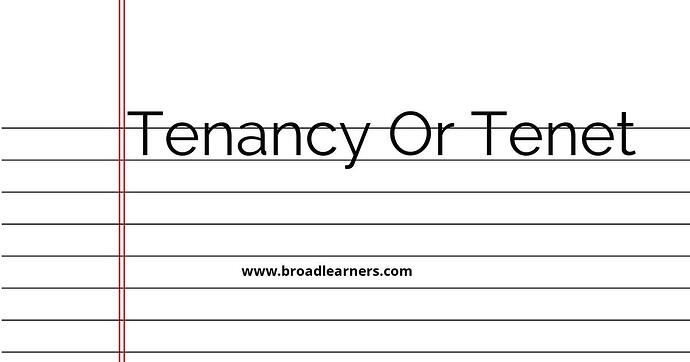'Tenancy' and 'tenet' are commonly confused words in English grammar. Understanding the difference between 'tenancy' and 'tenet' is important to use them correctly in written and spoken English.
'Tenancy' refers to the act of occupying or renting a property, especially on a temporary basis. It is a noun that describes the state or condition of being a tenant or occupying a property.
'Tenet', on the other hand, refers to a principle or belief that is held to be true by a person, group, or organization. It is a noun that describes a fundamental belief or doctrine.
Let's take a closer look at the meanings and usage of 'tenancy' and 'tenet'.
| 'Tenancy' | 'Tenet' |
|---|---|
| The word 'tenancy' refers to the act of occupying or renting a property. | The word 'tenet' refers to a principle or belief that is held to be true. |
|
|
To remember the difference between 'tenancy' and 'tenet', it can be helpful to focus on the meanings of each word. 'Tenancy' is related to renting and occupancy, while 'tenet' is related to principles and beliefs.
Here are some examples of correct usage:
- She has a tenancy in the apartment building. (referring to the rental agreement)
- One of the tenets of democracy is the right to free speech. (referring to a fundamental belief)
- His tenancy ended when he moved out of the house. (referring to the period of occupancy)
- The company's core tenets include teamwork and innovation. (referring to principles)
Remembering the correct usage of 'tenancy' and 'tenet' will improve your grammar and communication skills.
